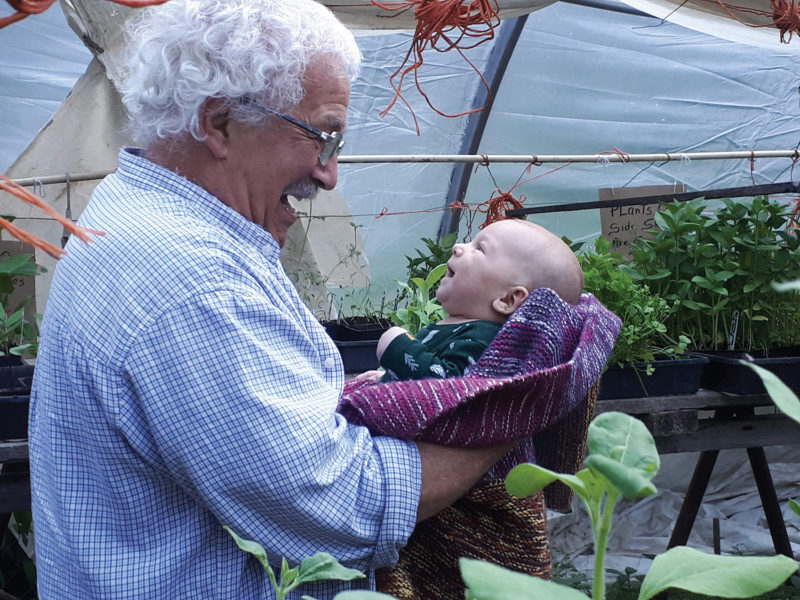DUNSTER – With the average age of BC farmers close to 60, retirement and farm succession is a looming issue for many operators.
Pete Amyoony, who has a small market garden and a 1,250-square-foot greenhouse on a 10-acre property in the small community of Dunster, understands what it’s like to be anxious about what the future holds.
He’s produced bedding plants and vegetables on the property since 1996, but in his mid-70s he began thinking about the future.
“I was sort of at my wit’s end,” he says. “I thought, I’ve got to do some kind of preparation and get ready for this transfer. I can’t spend five hours a day down on my knees transplanting. And I thought, I’ve got to find somebody to come here and help out or take over the place. I was in a real quandary.”
Now 80, Amyoony has nieces and nephews, but they are in Nova Scotia and have no interest in coming out west.
But 10 years ago, Yann Assemat was visiting from France and fell in love with the mountains around Dunster. He visited with Amyoony for a few months and worked on the farm. Over the years, he continued to come over from France through the Worldwide Opportunities on Organic Farms (WWOOF) program and further explore the province. On one of these visits to BC, Assemat was touring Vancouver Island, met Katrina Agnew and got married.
“When Yann started saying, ‘Oh, I’d love to find a place around here but I don’t have much saved up,’ I said, ‘well, let’s talk about you taking over this place,’ and his eyes just lit up,” Amyoony says. “So what we’re working out is an agreement that I can stay as long as I want in my little home, which I still really love. I said, ‘Come on, let’s talk about it and see if we can make everybody winners here,’ and that’s what we’re doing.”
Home sweet home
Assemat and Agnew, originally from Prince George, and now their son Zavion, live in a yurt on the opposite side of the property from Amyoony. The couple operate the farm as Roots ‘N Thyme with Amyoony serving as “garden guru.”
“I have my privacy and they have theirs, but we share meals,” Amyoony says. “They’re here with the baby and I’m grandpa Pete.”
They also share the Internet. It’s not as good at his house, so Amyoony heads over to the yurt for better connectivity.
“They are family,” he says of Assemat and Agnew. “I’ve let them take over most of the garden space now. They added another half acre last year.”
Having someone lined up to take over his market garden gives Amyoony peace of mind, but working out the logistics of the transfer requires legal input. He’s grateful to have the support of Young Agrarians, which manages the provincial land-matching program. The program recently reached a milestone of matching 100 new farmers to 5,000 acres of land through 46 matches.
“The Young Agrarians program is just amazingly helpful in a case like this because they have legal advice and forms and that for making lease agreements, and purchase agreements and so on,” he says. “It’s really helping us. Saving us lawyer fees.”
Non-family transfer
Amyoony is lucky. He was able to find a successor on his own. For those who need assistance, the province of BC has the BC Land Matching Program, part of the Ministry of Agriculture, Food and Fisheries.
BC Land Matching program manager Darcy Smith notes landowners participate in the program because they want to make sure their land remains farmed.
“The reality is that not everyone who wants to farm can afford to buy land,” she says. “And not everyone who can afford to buy land is a farmer themselves.”
Young Agrarians’ transition toolkit for non-family farm transfers – the program Amyoony is participating in – launched in November 2020.
“We facilitate conversations. There’s lots of detail involved as well as big picture vision stuff,” Smith says. “We’re going to help people figure out what their needs might be and then how they’re going to get resources to figure that out. Referrals to lawyers, or accountants or transition specialists. That’s where we see extra support being needed.”


 Greenhouse sets example for others to follow
Greenhouse sets example for others to follow